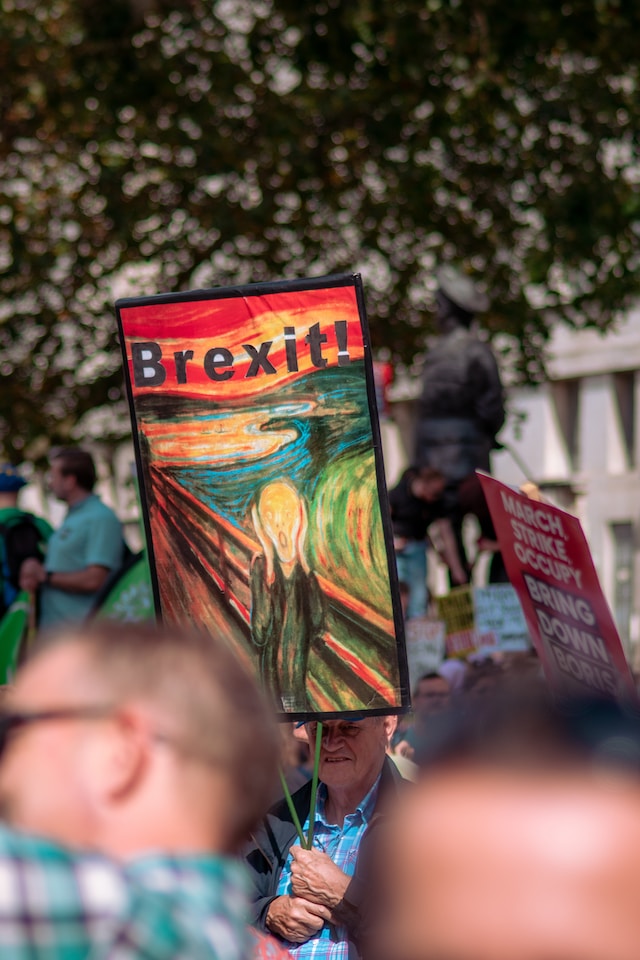Weaker post-Brexit Britain’s not-so-special relationship with America
One German chancellor said the US-UK equation was so wonky and asymmetric only one side seemed to know it existed

Almost every one of Joe Biden’s visits to Britain as US president produce more heat than light. And it’s only partly because he’s barely there when he’s here and mostly because the UK has adopted a chip on its shoulder posture towards the US.
Of course, it’s true that whenever he’s in Britain Mr Biden seems to take his cue from Macavity, the mystery cat… now you see him, now you don’t. Like Macavity, he just isn’t there…or not for very long. Over July 9 and 10, he spent one night and nearly one whole day in the UK, meeting Prime Minister Rishi Sunak and King Charles. And then he was off to Vilnius for the Nato summit.
In April, Mr Biden flitted through Northern Ireland to mark the 25th anniversary of the Belfast/Good Friday Agreement, which ended three decades of violence in the UK province. But he spent the very briefest of moments in the British province before seeming to head gladly and with some relief for Ireland. While in Belfast, Mr Biden conducted only one public engagement and he met Mr Sunak so glancingly, it couldn’t even be described as a bi-lat (eral meeting). Instead, it was dubbed, only half in jest, as a “bi-latte”, a catch-up cup of coffee.
There’s been some muttering in Britain about Mr Biden’s alleged bias against the UK particularly in light of his Irish roots. Northern Ireland’s politicians have played these up, expressing anger over Mr Biden’s attempt to nudge them towards peace and shared political governance. In April, British unionist politician Nigel Dodds of Northern Ireland’s Democratic Unionist Party (DUP) made so bold as to tell The Telegraph that the Biden administration was “transparently pro-nationalist”. DUP MPs Sammy Wilson and Ian Paisley Jr were equally acerbic. The first said Mr Biden was patently “anti-British”; the second was derisory and dismissive about “the poor fella”, whom he said was “unfortunately quite gaffe prone”. Mr Paisley also said that it wasn’t really the US president’s place to do anything about Northern Ireland anyway: “It would be like a Frenchman coming over to you and telling you what to do in England”.
True or not, three months on, Mr Biden’s visit to Northern Ireland appears to have been an irrelevance.
But it did matter to give us some sense of the US-UK relationship. What on earth is going on between Britain and America? Are they falling out of love?
Were they ever in love? Truly, madly, deeply?
The “special relationship” was always a Churchillian concoction (which is only slightly more substantial than Boris boosterism). In 1946, Churchill used a speech in Fulton, Missouri to propose this loving equation with the United States. It would be, he said, a “fraternal association” of English-speaking peoples and would involve not only kindred societies but military collaboration.
That was a canny suggestion. Post-imperial Britain was languishing in the shadow of a rising America. The only course for Britain, Churchill decided, was to present itself as an indispensable nation – an essential part of three great circles among democratic countries, the Commonwealth, the Anglosphere and a united Europe.
But in the 1950s, Prime Minister Harold Macmillan was rather rude about the US, even going so far as to suggest that Britain’s attitude to America should be that of a coach. In this imagining, Britain would play Athens to America’s Rome, and teach a “vulgar, bustling” people how to run a rising empire.
It would take yet another decade for America to reveal its disinterest in the “special relationship” and its disdain for any special coaching of the sort Macmillan was suggesting. Dean Acheson, a former US secretary of state, famously issued his damning judgement that Britain had lost an empire but not found a role.
It was the European Economic Community, as the grouping was called back then, that served as a solution of sorts. In joining it in 1973, Britain was, at last, able to present itself as a worthy and useful trans-Atlantic channel. There were limits, of course. One German chancellor, Helmut Schmidt, said the special relationship was so wonky and asymmetric only one side seemed to know it existed. Despite Tony Blair’s posturing that Britain would serve as “the bridge between the US and Europe”, it wielded limited influence on both sides of the Atlantic.
Brexit changed everything. Now, there is an air of fragility about Britain’s status and role in the world, as well as its value to the US . And Mr Biden’s brief trips to the UK serve as a clarifying moment. Not only is Britain’s sense of ill-usage apparent, so is the nature of its relationship with the US – warm but really not that special.

